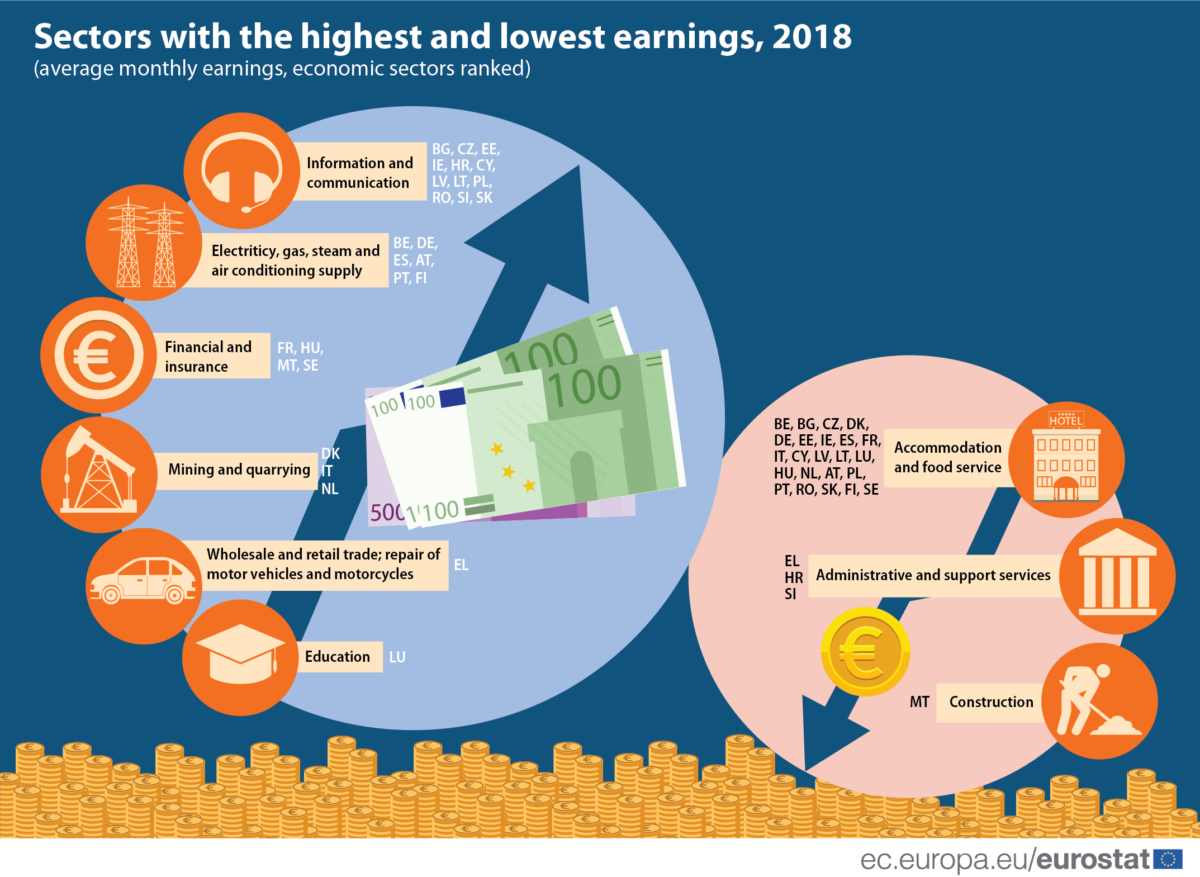Financial and insurance activities are the highest paying sectors in four out of the EU’s 27 member states including Malta, Eurostat has revealed.
The EU statistics arm released a report on the best-paying sectors in the EU on Tuesday, and its findings show in both its highest and lowest paying sectors Malta is in a minority.
Where information and communication pay the most in 12 out of the 27 EU member states, and the electricity, gas, steam and air conditioning supply sector was the highest paying in six, only France, Hungary, Malta and Sweden are reported to have financial and insurance activities as the highest paying sector.
On the other end of the spectrum, Malta was alone in its construction sector recording the lowest pay, with the vast majority of nations reporting their accommodation and food services sector had the lowest pay, whereas in Malta this industry paid the second-lowest.

Also revealed is that in Luxemburg, education is the highest paying sector, and the motor vehicles trade and repair sector was the highest paying in Greece alone, whereas in most other member states it ranked amongst the lowest.
The report takes into account gross monthly earnings, referring to wages and salaries earned by employees in a reference month (generally October 2018), before the deduction of tax and social security contributions.
The findings presented by Eurostat are largely in line with prior studies. For example, according to emolument.com, jobs in financial services pay an average of $90,000 (€75,000), which is second only to roles in “executive management and change”, which are reported to pay an average $180,000 (€150,000).
However, as the statistics for the Eurostat report are derived from the “structure of earnings survey”, which is carried out only every four years, its findings may not reflect the full impact of COVID.
A labour force survey conducted by the NSO in December for example suggest that employees in financial and insurance activities were still being paid the most in Q3 2020. On the other hand, the average basic salary for employees in the construction industry actually seems to have leap-frogged the same figure for those in “wholesale and retail trade, transportation and storage, accommodation and food service activities” and agriculture too.
Featured Image:
Eurostat
MFSA flags ‘misalignment’ between objectives and public expectations of green loans
Green investment is nonetheless expected to balloon over the coming years
Super rare Ferrari Daytona SP3 spotted cruising along Malta’s roads
The car is currently being traded for a whopping €4 million
Mandatory skills pass for Maltese and EU nationals deferred for a year
The skills pass remains obligatory for third country nationals






